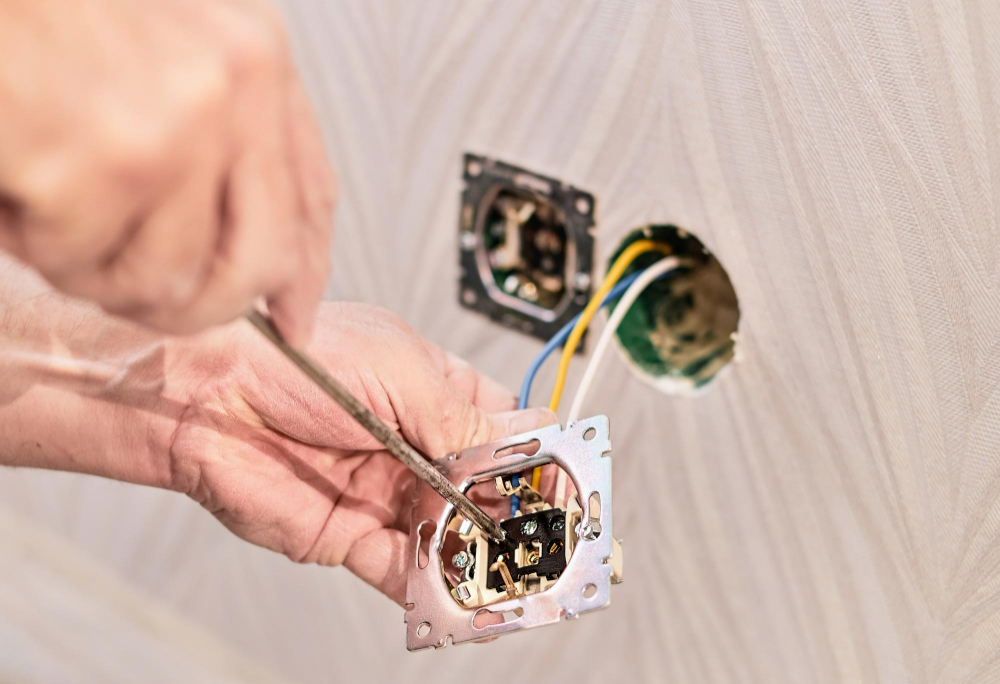A functional electrical circuit has three essential components: an electricity source, a conductor, and a load. The electricity source supplies the current, the conductor carries it along, and the load uses the current as it flows through the circuit.
When excessive electrical current passes through one part of the circuit or an obstruction within the circuit hinders the regular flow of electricity, it can overload the circuit. Such an overload can result in tripped breakers, blown fuses, and even present fire hazards.
To ensure your electrical system is operating at its highest efficiency and to avoid potential hazards, keep an eye out for any warning signs of an overloaded circuit.
Signs of Overloaded Circuits
It is rare for electrical circuits to operate at total capacity throughout their entire operational period. Instead, each circuit operates within a specific voltage and amperage range.
Since they function at a reduced efficiency level, problems will go undetected until they reach capacity.
Upon turning on the circuit, you may see sparks or heat that can cause severe damage to your home or office.
Be aware of the following warning signs.
Flickering lights
The priority is for the appliances with a high power consumption; as a result, lights are more likely to be interrupted if there are power outages. A new device can cause the light to flicker or dim.
The increased demand for electricity in the modern world necessitates updating electrical systems in many older homes.
Compared to a few years ago, the average home now utilizes much more electricity for appliances such as microwaves, refrigerators, dishwashers, stoves, clothes washers, and TVs.
Unusual noises
If you notice a buzzing, crackling, or sizzling sound from your outlets and switches, you are likely dealing with an overloaded electrical circuit.
Additionally, these outlets and controls may be warmer than usual to the touch.
Burning smell
The burning odor emanating from electrical wiring may indicate a potential for an electrical fire. It could be due to wires shorting or melting, which should be taken seriously and addressed immediately to avoid severe damage to your home.
If you detect a burning odor from one of your wall outlets, please immediately shut off the electricity at the electrical panel and wait for an electrician to arrive.
To prevent a potential problem, you should contact a certified electrician if you notice any warning signs.
What Causes an Overloaded Circuit?
A home’s electrical system can be at risk when circuits become overloaded. There is a specific amount of electricity that each circuit can safely handle.
Exceeding the load of a circuit can be dangerous, as it can cause a fire or other safety issues. It is imperative to recognize this overload, as it is not only at its maximum capacity but has surpassed the limit.
Overloading of circuits is a frequent problem encountered in older homes. Many of the older homes in the region cannot efficiently accommodate the modern electrical demands.
When an overload occurs in a circuit, a breaker trips to shut off the power for safety purposes. It can be inconvenient if it happens while using an electronic device such as a hairdryer. However, this is an essential measure in place to prevent electrical hazards.
Frequently Asked Questions
Excessive strain can be placed on electrical circuits when the amount of appliances or devices in use exceeds the power supplied by a given source.
For example, an individual could use an extension cord to power a hairdryer, coffee maker, and toaster.
For instance, a household circuit rated for 20 amps (or 1,920 watts) may need help to handle the power requirements of a hairdryer, coffee maker, and toaster plugged into an extension cord, as all three require approximately 3 watts each. In such an event, the circuit would trip.
An excessive amount of electricity can cause a circuit to become overloaded, leading to a breaker or fuse disconnecting service or even causing a fire risk due to wires overheating.
Here are a few steps which help to avoid overloading of a circuit.
- Verify the integrity of your wiring and electrical appliances.
- Analyze the energy usage of each device.
- Disconnect nonessential, high-energy consuming appliances.
- Purchase energy-efficient appliances.
- Evaluate the possible benefits of home rewiring.
The most effective way to resolve a circuit overload is to transfer some appliances to another circuit available for general use. It is then possible to reset the circuit breaker or replace the fuse.



